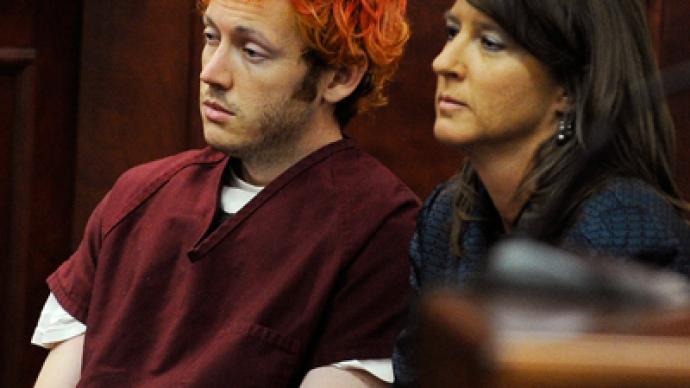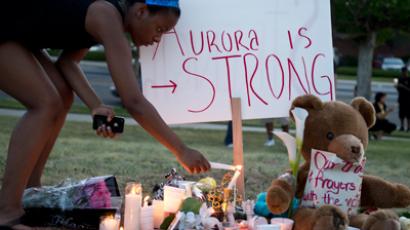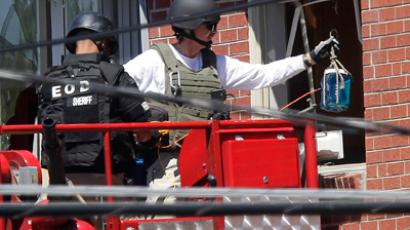Joker case gagged: Media fight Colorado court ban

Attorneys representing media outlets are in court to push for the publication of files concerning the Colorado cinema murders. The judge put a gag on the files at the behest of prosecutors, but the press argues the public has a right to see them.
The decision to seal the documents off from public access "undermines our nation's firm commitment to the transparency and public accountability of the criminal justice system," said media lawyer Steven Zansberg in a written statement.The Associated Press along with 20 other news agencies is appealing for the dissemination of the documents in court this Thursday.Judge William Sylvester closed the case on July 20 at the request of the prosecutors, who claim that releasing the files could potentially jeopardize the case investigation. The move sparked a wave of protest from the media, saying the public had a right to see the documents.Press attorneys argue that the explanation given for the sealing of the files is not adequate and needs to be elaborated on if the bar is to remain in place. In most court cases in the US the documents pertaining to the trial are available to the public. However, exceptions are made if files obstruct an ongoing police investigation or encroach on the privacy of family members of the victims.The files in question include the affidavits the police would have filled in before defendant James Holmes was arrested, detailing why officers thought that he was the murderer. The bar on the documents makes it impossible for observers to follow the arguments put forward by the defense and the prosecution during the trial because they reference the files by number only.Judge Sylvester has also classified the court docket, preventing observers from seeing any documents filed in connection with the case. “We don't know how many other documents are in the court file because there is no public docket," said ZansbergGregory Moore, editor of The Denver Post, said the gag order “goes way beyond what's necessary to protect the defendant's right to a fair trial.”“It is performing our watchdog role to look at the process and try to assess for the public how the police have handled the case and assembled the evidence and assure for the defendant and the public that things are being conducted open and fairly,'' he told AP.There is still comparatively little information on how James Holmes prepared for the cinema shootings in July. In addition, it is not known how he managed to transform his apartment into a veritable deathtrap, rigging up explosive poised to kill any intruders.The 24-year-old neuroscience graduate is charged on multiple accounts of first-degree murder and attempted murder. He opened fire on movie-goers attending a showing of the new Batman film on July 20, killing 12 people and injuring a further 58.Holmes has been uncooperative with investigators, remaining relatively silent during court proceedings. The US authorities believe that Holmes had assumed the identity of Batman villain “the Joker” in order to commit the killings. During the police search of his apartment officers reportedly found Batman-related paraphernalia. Judge Sylvester has set a pre-trial hearing for September 27 and a preliminary hearing for November 13. If Holmes is found guilty he could face the death penalty.














